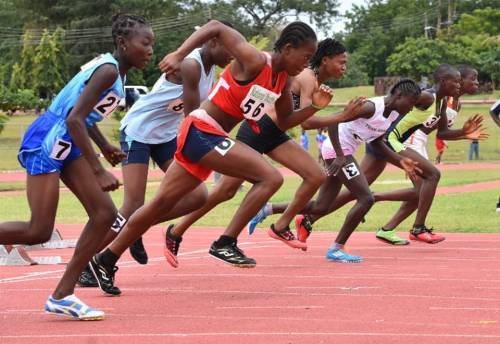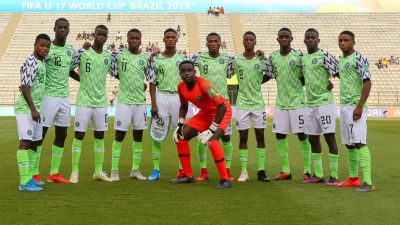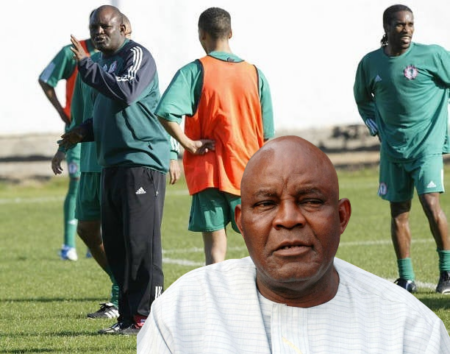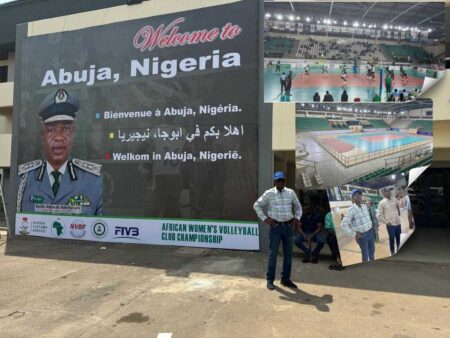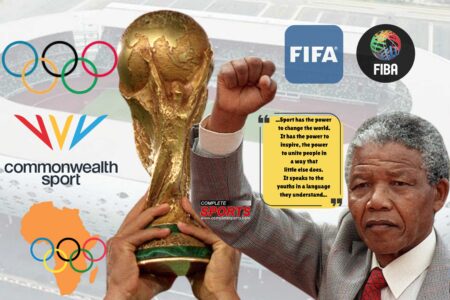There is a very important two-year lacuna in Nigeria’s sports development structure that requires a little forensic probing.
In the past, we often spoke of the efficacy of the grassroots architecture of Nigerian sports, how we evolved through the school sports system, specifically through what was known then as the academicals. We look back and pay glowing tribute to that foundation upon which Nigerian sports grew and flourished in those ‘good old days’.
We recall with nostalgia how a whole legion of athletes came from schools and many went on to represent the country at senior level after participating in the academicals, or in junior international competitions in tennis, cricket, athletics, table tennis, and so on. A game like Cricket thrived in only a few secondary schools considered ‘elite’ like Kings College Lagos, Government College Ibadan, and others.
Haruna Ilerika, Tunde Martins, Yomi Bamiro, Titi Adeleke, Gloria Ayalaja, Adokiye Amiesimaka, Stephen Keshi, Henry Nwosu, Taiwo Ogunjobi, Best Ogedegbe, Emmanuel Egede, Garba Okoye, David Ejoke, Tunde Disu, Yakubu Ibn Mohammed, Isa Borodo, the Akigas, and so on were amongst a long list of those that rose through the secondary school sports ranks and almost immediately went on to represent the country.
Why has that tradition ended now?
Why has that system been drowned by the annoying allegations of cheating and age falsification since the introduction of specific age-grade competitions?
Why has the introduction of age afflicted our sports development structure and held back genuine development? Are we misdiagnosing the ailment? Why have we not been able to get rid of the ‘cheating’ pandemic despite all the moral weapons we have thrown at it? Why would school principals, coaches and even administrators still be complicit in sustaining this trend if they all know it is wrong? What really is the problem? There seems to be more to the issue than meets the pedestrian eye. I needed to look closer at what could be wrong. Come along with me.
A few years ago, I recommended two of the best student/football players in the Segun Odegbami International College and Sports Academy, SOCA, to the coach of the Under-17 national team. They were truly exceptionally gifted players, 16 at the time with genuine birth certificates and their records in the school since they joined as 11 year olds as evidence to confirm their credentials and eligibility.
I requested to take them there in order to try to understand what the problem really was for coaches to use genuine youngsters to represent the country. If youngsters in our days could play or compete for the country at the senior level from secondary school, what happened to that process? Now. Officials choose, with the aid of parents, coaches and even administrators, to dump morality, ‘cheat’, win and consequently truncate development to a better future?
So, off I went to the national Under-17 camp in Abuja to watch some trial matches involving my two student star players.
Also Read: Anthony Joshua Vs Kubrat Pulev Is Just The Beginning Of An Exciting Festive Boxing Schedule
Only one of them lasted more than 10 minutes on the field of play. They were saved from themselves by the coach who quickly had to substitute them. If I were the coach, I would have done exactly the same thing and removed them even earlier. They could not cope. At 16 their skills only accounted for little. What were needed additionally were speed, power and maturity. They were ‘bullied’ and kicked out of reckoning by the stronger, fitter, faster and obviously slightly older players. Incidentally, many of the other players could have been from schools also, but that was not my interest.
That year, the two students were lucky to have been selected by MTN, the communication giants, in their annual very elaborate program of discovering the best football talents with the right academic qualifications in secondary schools in the country and sending them to American High schools/academies preparatory to their subsequent admissions to US Universities. This interim program in the US High schools/Academies lasted between 12 and 18 months before admission into the Universities.
My two students qualified for the program, went to the US and joined the collegiate system.
Three years after that incident in Abuja, MTN brought back the players on that program from America for a two-weeks showcase of its success. My two students were in the contingent that came for exhibition matches held at the University of Lagos Sports Complex grounds.
By this time, the students were both around 19 years of age.
The friendly matches were with some Nigerian football clubs and academies. I was invited as a guest. I was mesmerized by what I saw.
The transformation was total. I could hardly recognize my former players. They were now bigger, stronger, faster, more mature, and still absolutely skillful.
They could now play at any level. If they went back to the national Under-17 team in Abuja, not only would they cope, they would be the ‘bullies’ this time around. They were now equipped to play at Under-17 and win the World Cup at that level with their eyes closed.
So far, I have not written anything that 99% of Nigerians do not already know has been the greatest reason for our ‘success’ in football at Under-17 level coupled to our under- achievement at higher levels.
But that was not my focus, or interest, in observing the growth of the students from my school.
My interest was about their transformation, when, how and why it happened.
I discovered that age had to do with it. That there is a ‘magic’ age range – between 17 and 19, when the physical and mental transformation in youngsters takes place.
From age 19, all athletes, well-trained, with adrenalin pumping through their system, become fit and ready to take on the world at all and any levels. Athletes from this age can be anything and achieve any targets.
Below 17, it is only an exceptional few in history, that become elite, successful and world class. Of course, there are a few sports like Gymnastics where much younger children thrive.
I start to look at the records of athletes globally. Without question, there are a few child prodigies that excel as ‘seniors’ at 17. In football, the great Brazilian, Pele, remains one of the best examples. In tennis, there are also a few that hit global standards at 17 – Boris Becker, Monica Seles, Sharapova, and a few others.
My general finding is that 19 is the magic age of transformation. At 19 a youngster can conquer the world.
Usain Bolt started earlier but it was at 19 that he became a world Champion.
Lee Evans broke the world record as a student athlete at 19.
Jay Jay Okocha, one of the few Nigerian players closest to the age recorded against his name in the books, exploded into the German league at 19.
In going back into Nigeria’s nostalgic past in academicals sports to look at those that did very well and went on to represent the country as seniors, I see a trend. They were mostly in higher school certificate classes, or were repeating their final year classes. They were in the 19/20 age bracket, even though they were actually students and were not cheating or falsifying anything.
The turning point in that established grassroots sports development architecture through schools sports in the ‘olden days’ ended when the Higher School Certificate classes that housed the majority of our 17 to 19 year olds were stopped, and a new academic structure was introduced that started to keep most of the young, graduating, average 17-year old, talented athletes in the limbo of searching for admission into Tertiary institutions that do not encourage sports, or of repeating Jamb and WAEC exams, or of joining the army of jobless and frustrated youngsters wandering in the wilderness, courted and lured into Yahoo Yahoo, prostitution, drugs, hoodlumism, and so on, wasting their critical transformation 2 years in the school of immoral and amoral studies.
That is the lacuna that has birthed the problem with our grassroots sports development through schools the schools’ system. Think about it.
So, what can we do about this? How can we fill that void in our children’s lives?
In sports, we have to first understand and appreciate that this gap exists.
As we do not have the power to tweak the present academic architecture again to warehouse the 17 to 19 year olds within our present secondary schools, we must come up with something new, something that would be a holding bay (in the years between 17 and 19 when they finish secondary school) for this army, giving them plenty of sports, the opportunity to continue to train and participate actively in competitive sports, preparing them for further education, or some vocational training that can sustain them in the future.
I am thinking already and conceiving a model with my team of sports experts that will kick-off in the summer of 2021 at SOCA.
Gani ya fi ji! This is Hausa for ‘To see is better than to hear!



